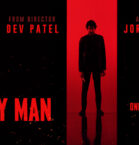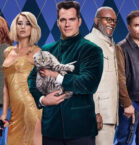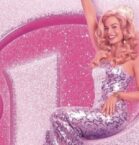W.
W is a film that will elicit a lot of opinions and thoughts before people even see it, mainly because of the topical subject matter it covers. Even now, with Obama in office and America heading in a different direction, people can’t stop talking about our 43rd President. Knowing Oliver Stone’s distaste for Mr. Bush and republicans in general, I was expecting a two hour film dedicated to insulting and humiliating our former President. After all, this is Oliver Stone; he’s not exactly known for his even handed storytelling.
Stone didn’t exactly have to do much, as all Americans know, George W. Bush can humiliate himself without the help of a filmmaker. Stone shows us some of these moments, but is careful not to paint him as a clown. Stone manages to show audiences that behind the ridiculous comments and the frat parties, George W. Bush is just as human as the rest of us. He’s not (completely) a bumbling idiot that many people may have thought he was. So I have to pause and acknowledge that maybe Oliver Stone is finally growing as a filmmaker, because here, he has managed to leave his personal agenda behind and let the events unfold naturally on the screen.
The film is told in two intertwined stories. The first story starts with Bush (Josh Brolin) in his early fraternity days, progressing towards his run for Governor and the second has him in office, leading up to the Iraq war. We’ve heard a lot of this stuff before, either through heresy or in the newspaper. Stone sticks with the major stuff (meeting Laura (Elizabeth Perkins), finding Jesus, running for Governor, etc.) but maybe delves too far into his relationship with his father, played by James Cromwell. If I question the legitimacy of any part of the movie, it would probably be their relationship. It’s easy to assume that a doofus son would struggle to live up to his father’s expectations, but I wonder how much of it was inferred and how much was based off fact.
The meat of the film centered on the meetings Bush had with his advisory team. Thandie Newton, Richard Dreyfuss, Jeffrey Wright and Scott Glenn made up Condoleeza Rize, Dick Cheney, Colin Powell and Donald Rumsfeld respectively. All of them were shockingly good in their roles, even if Newton over dramatized Rice a little too much. However, I laughed out loud several times watching her and her reactions to Bush’s comments. I don’t know if that was Newton on her own or Stone yelling at her off screen, but it was fantastic. The scene with the team towards the end of the film as they were reflecting on the lack of WMD’s in Iraq was a wonderful scene and well worth the price of admission alone.
Unfortunately, the interactions with the cabinet are sporadic and the rest of the story is a little dull. The father-son relationship overshadowed much of the film and it was dramatized to the point that it was distracting. We also had some ideas or sub-storylines that were thrown out there but never explored (his girlfriend and her reported abortion, etc.). I can assume that these were left to interpretation because Stone didn’t have the facts, but it would’ve been better to leave them out altogether.
But one of the challenges of making a bio-film about a living person is that you don’t have your ending written for you. That was evident in this film because Stone didn’t know how to end it. It felt like there was more story to tell, because there was. Heck, Bush wasn’t even out of office when the film was released in theaters, much less when they stopped production. I think waiting a year and covering Bush’s reaction to Obama taking over and a reflection on his Presidency would have been a nice way to end everything. As it was, the film just kind of ended and for the first time in my life, I was actually left wanting more George W. Bush.
[fbcomments]

 Brad Sturdivant
Brad Sturdivant















